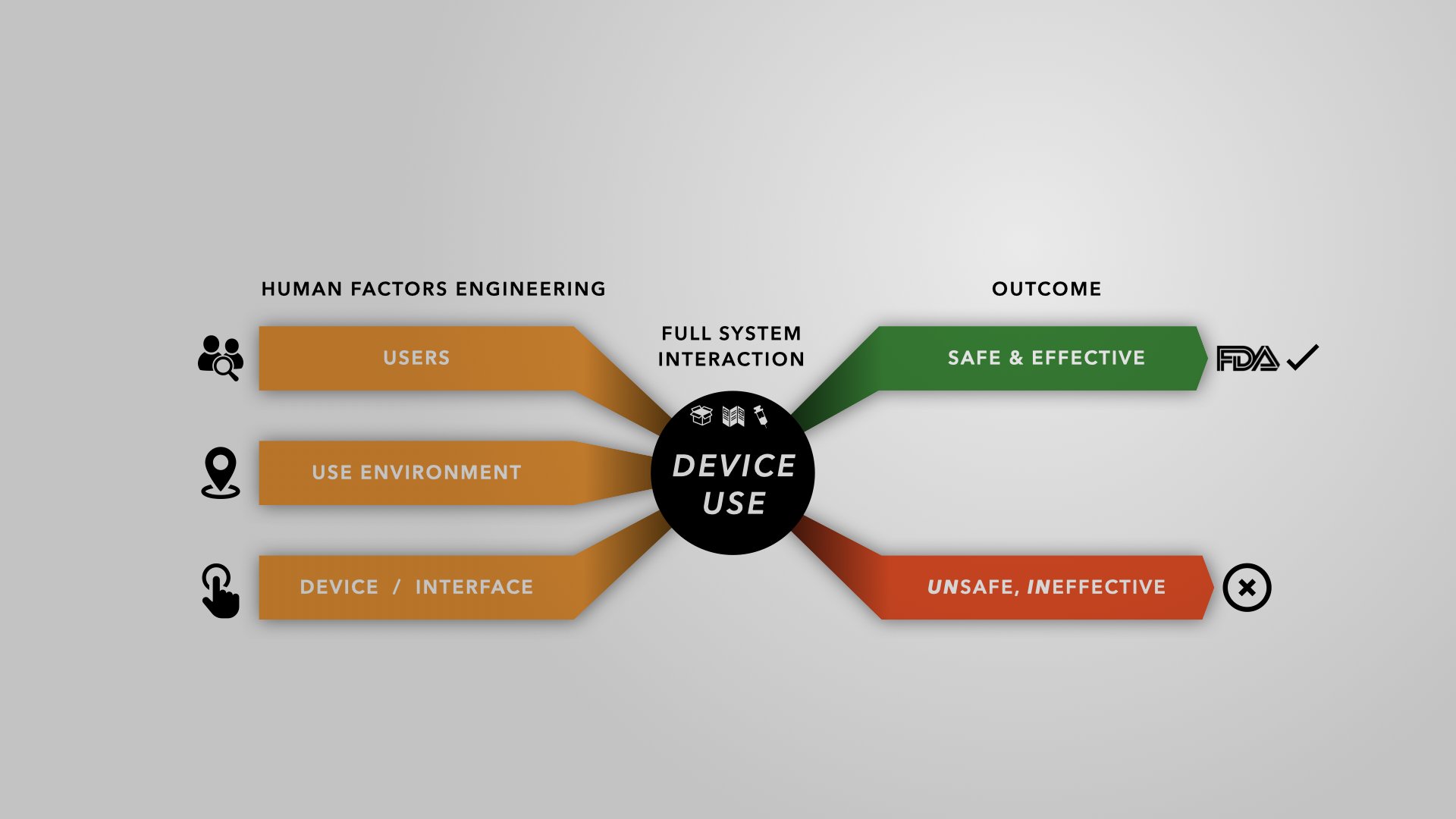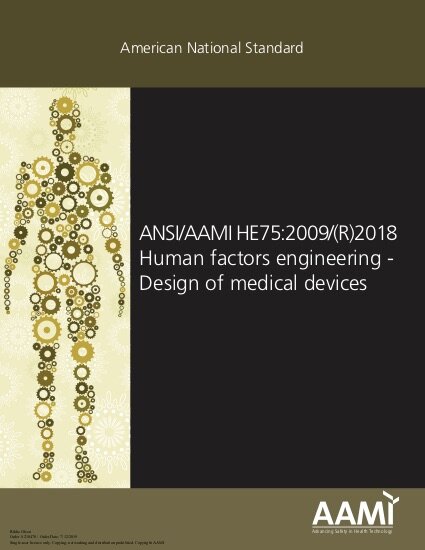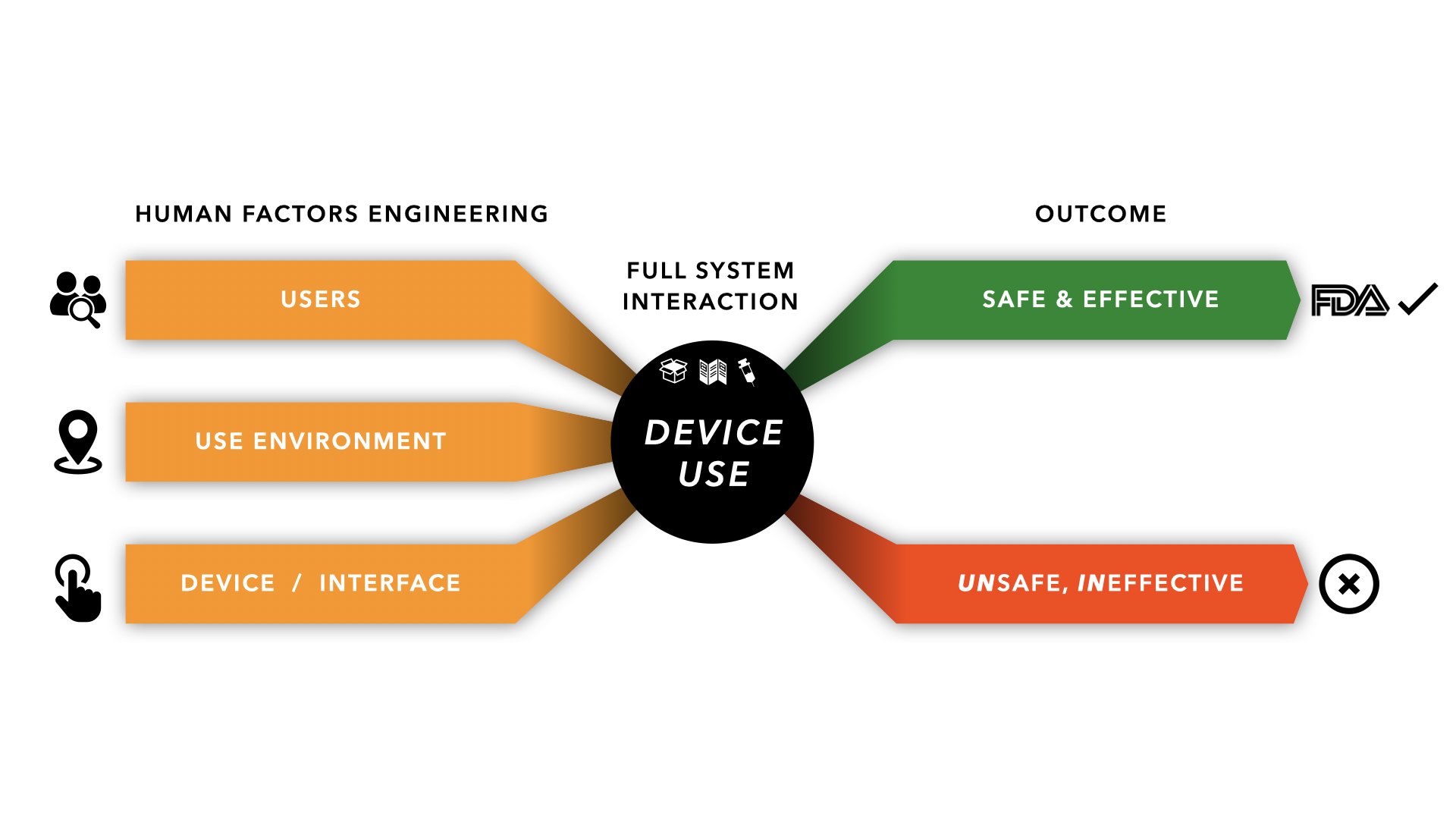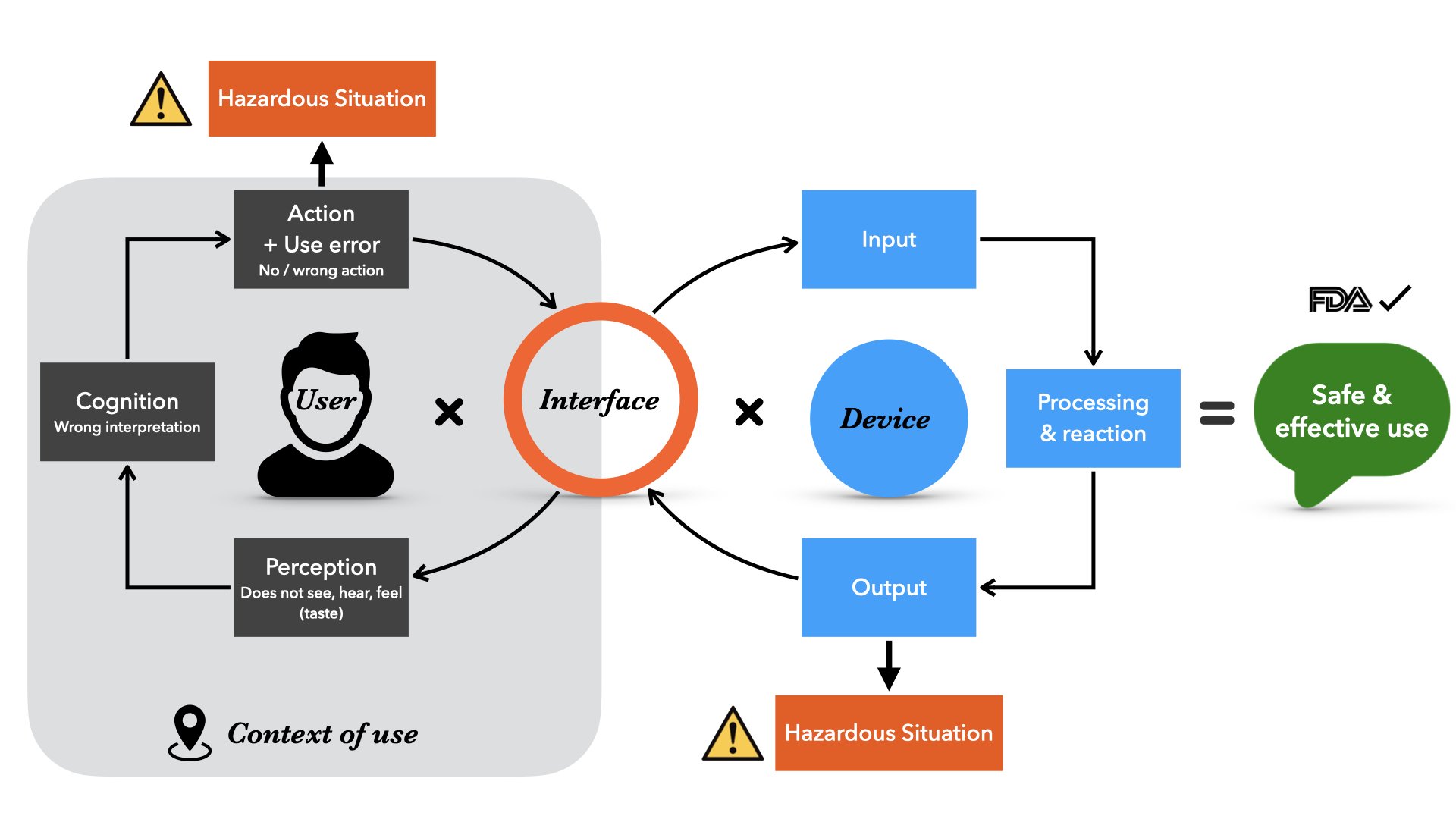Human Factors Engineering Our Services
Our team of psychologists support all phases of the IEC-62366 to analyse, specify, develop and evaluate the usability of medical devices.
Human Factors Engineering (HFE) is a systematic usability assessment process to document safe and effective use of a product by its intended user group(s) in the relevant contexts(s) of use.
At Design Psychology, we have many years of experience helping MedTech companies with the HFE process.
Our human factors team - all with backgrounds in psychology - can assist from user research to final summative testing.
Our work is in compliance with current regulatory standards for medical device development (such as IEC 62366-1, ISO 14971, FDA Guidance “Applying Human Factors and Usability Engineering to Medical Devices”, 21 CFR 820.30/ISO 13485, and IEC 82304).
Why psychology experts?
The essence of human factors engineering is to deploy a deep (and correct) understanding of how human beings function into the design process.
Psychologists are uniquely schooled in how human beings work for a minimum of 5 years. Alongside that we have knowledge and skills in advanced testing methodologies that allow us to meticulously verify and validate you design.
The better you understand how humans function, the better you can optimise your design to fit what humans are naturally good at - and avoid where we tend to fail.
We have a robust team of psychologists ready to support your human factors engineering design process.
HFE kick-off
How far will a budget of 250.000 Dkr get you in the HFE process?
Read about our HFE package that lays a solid groundwork for your HFE process and takes the first solid strides into usability testing and instructional material.
User research & requirements
Don’t start you device development before you are clear on the user needs and your value proposition. Next, your use specification should capture details about all intended users, the intended use and the contexts of use. Finally, you can start to build your requirements and specifications. From here design development can begin.
Contextual inquiry & value propositions
Identification, compilation and root-cause analysis of known use errors and use-related problems (e.g., MAUDE database review).
Use specification documentation
Task analysis
User-driven requirements
Design input
Usability tests
We help verify and validity your design continuously during the design process.
Participant recruitment and lab facilities
UX expert reviews / heuristic reviews
Diagnostic usability tests
Formative usability tests
Validation tests (summative tests). In the US, with local partners, e.g., HS-Design and InsightPD.
Instructions for use (IFU) & packaging design
Labelling design
Packaging design
Quick reference guides (QRG)
Instructions for use (IFU) & patient support material
Training videos
Patient support programs
Regulatory Guidance, Quality Assurance & Control
Usability test plan
uFMEA file
Risk analysis
Design control
Design reviews
“Our team of psychologists is your fast track to cost-effective human factors design”
Are you looking for a partner in QMS and Regulatory Affairs?
Then we would like to refer you to our trusted partner: ➞ Sigma Systems.
Why use human factors engineering?
First and foremost, HFE will help you develop a product that can be used safely and effectively by its users. Despite superior technologies products can still fail if actual users are not able to use them intuitively in the intended use context. Therefore, HFE studies and user tests add indispensable information to your product development. Our unique team of psychologist gives you certainty that design solutions will integrate smoothly with the skills and capabilities of the intended users.
Second, HFE is necessary for documentation of safe and effective use, a critical element for regulated products’ approval from authorities.
Third, an often overlooked but essential impact of HFE is that it gives you the opportunity to promote your products with proven claims of usability. So, even if your product is not regulated and does not need approval to be marketed, we use HFE approach in every product to have a data-driven, proven value proposition of good usability.
Why choose Design Psychology?
At Design Psychology, we view HFE as an applied psychology process, wherein the intended users should be considered as complex human beings.
As psychologists, we distinguish our services by carefully accounting for the human science aspect in our human factors research. Our approach and knowledge provide an enhanced delivery in the design journey of products we work for.
Want to learn more? Then leave your information, and we’ll reach back for a brief chat.












